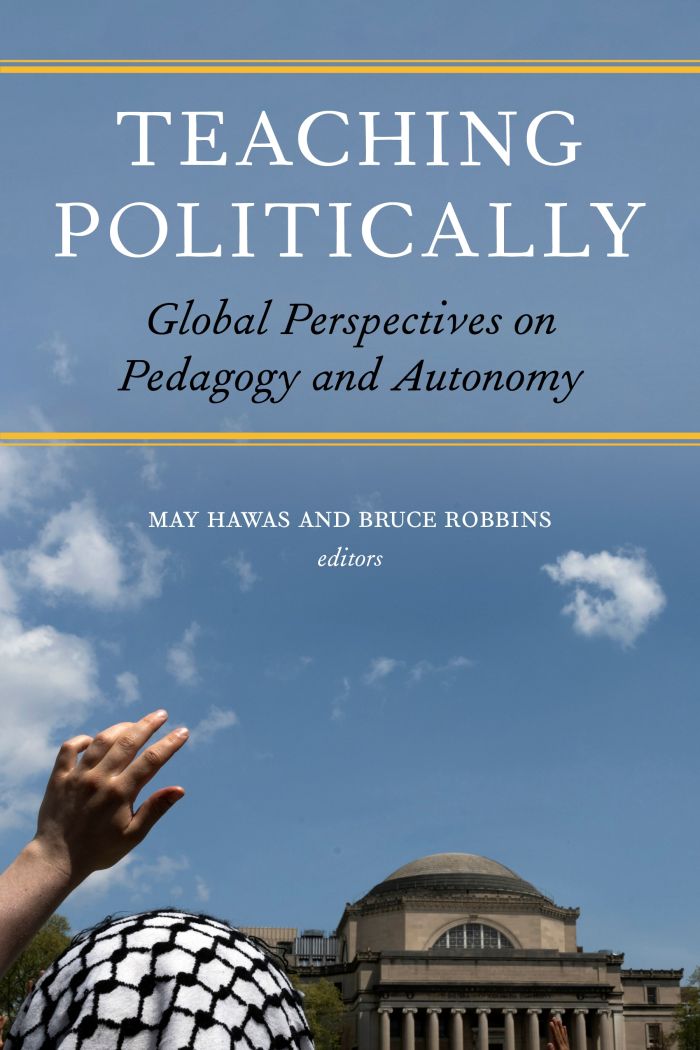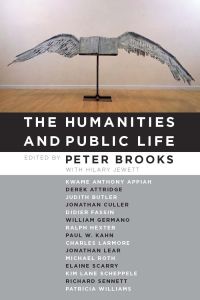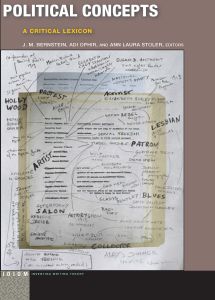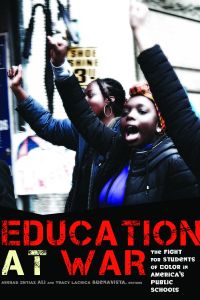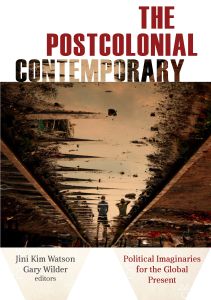Teaching Politically
Global Perspectives on Pedagogy and Autonomy

This book can be opened with

Culture is inextricable from politics. This includes the politics of who we are, as teachers, intellectuals, writers, cultural workers, and students, and what we want to bring to and take from the site of instruction. It also includes the politics of who we want to be, as citizens, professionals, and active contributors to our communities and to the world in general, and what we can be, realistically, in the particular contexts in which we live.
Teaching Politically addresses some of the political constraints that shape our pedagogical spaces, especially in the teaching of literature. The book brings together a global group of academics, activists, public intellectuals, poets, and novelists to examine the way politics manifest pedagogically, and how a commitment to educating manifests politically, in and beyond the classroom. At the heart of the discussion is how political and professional paradigms chafe against, intersect with, or otherwise become inseparable from each other in any vocation that attempts to educate: from writing, journalism, and public speaking to art, activism, and medicine.
Contributors: Dimitris Christopoulos, Dimitri Dimoulis, Khaled Fahmy, Rishi Goyal, May Hawas, Bonnie Honig, Mona Kareem, Benjamin Mangrum, Nora Parr, Bruce Robbins, Ahdaf Soueif, Omid Tofighian, Elahe Zivardar
Teaching Politically addresses a pair of important and resonant issues in universities in the U.S. and elsewhere: how one teaches and learns under political pressure and surveillance, and how one talks about politics in literary and cultural classrooms. The book’s attention to a range of sites around the world admirably pushes the conversation beyond the U.S. context.—Christopher Newfield, author of The Great Mistake: How We Wrecked Public Universities and How We Can Fix Them
At a moment when the politics of the university classroom is undergoing blistering attacks from the right, this smart and thoughtful collection investigates what is in fact political about teaching. What is authority? Who are the university’s publics? What is the teacher’s responsibility? This volume is refreshing and unusual in its global reach, addressing pedagogy and politics in Egypt, Greece, and Palestine, as well as the U.S. and Australia.—Caroline Levine, author of The Activist Humanist: Form and Method in the Climate Crisis
May Hawas is Associate Professor in World Literature at the University of Cambridge, and Valerie Eliot Fellow of English at Newnham College. She is the author of Politicising World Literature: Egypt between Pedagogy and the Public (Routledge: awarded the Anna Balakian Prize, 2022) and The Diaries of Waguih Ghali (American University in Cairo Press, 2 vols., 2017–18), in addition to a number of articles and essays; editor of The Routledge Companion to World Literature and World History (2018); and coeditor, with Theo D’haen, of the special issue of The Journal of World Literature, “What Is World Literature—of Arabic?” (2017). She has taught in Egypt, the US, and England, and is a former EUME fellow (FU Berlin).
Bruce Robbins (Edited By)
Bruce Robbins is Old Dominion Foundation Professor of the Humanities at Columbia University. He was educated at Harvard University and previously taught at the universities of Geneva and Lausanne and Rutgers University. His most recent book is Atrocity: A Literary History (Standford University Press, 2025). A collection of essays entitled Cosmopolitanisms, coedited with Paulo Horta (NYU Press), came out in 2017. His other books include Criticism and Politics: A Polemical Introduction (Stanford University Press, 2022), The Beneficiary (Duke University Press, 2017), Perpetual War: Cosmopolitanism from the Viewpoint of Violence (2012), Upward Mobility and the Common Good (2007), Feeling Global: Internationalism in Distress (1999), Secular Vocations: Intellectuals, Professionalism, Culture (1993), and The Servant’s Hand: English Fiction from Below (1986). He is the director of a 2012 documentary entitled “Some of My Best Friends Are Zionists,” available at bestfriendsfilm .com, and another short film about the Israeli historian Shlomo Sand, “What Kind of Jew Is Shlomo Sand?,” which came out in 2020 and is available at mondoweiss.com.
Introduction
May Hawas and Bruce Robbins | 1
Melville’s Democratic Pedagogy: Moby-Dick Takes On Hobbes’s Leviathan
Bonnie Honig | 20
Liberal Education and the Politics of Discussion
Benjamin Mangrum | 37
Teaching While Arab
Mona Kareem | 58
Whose Politics? Teaching Palestinian Literature
Nora E. H. Parr | 72
“Don’t Speak or Laugh! Greece Is in Danger!”:
Censoring Dissident Discourse on So-Called National Issues in Greece
Dimitris Christopoulos and Dimitri Dimoulis | 89
The Politics of Mentorship
May Hawas | 106
Teaching Literature Politically: Some Examples
Bruce Robbins | 125
Baking and Breaking Bread, or Daniel Defoe and the Catastrophic Imagination
Rishi Goyal | 140
Foundations for Nauru Prison Theory:
Australian Border Violence, Art, and Knowledge Production
Elahe Zivardar and Omid Tofighian | 151
Politics Was in the Very Air We Breathed
Conversations with Khaled Fahmy and Ahdaf Soueif | 170
Contributors | 191
Index | 195

